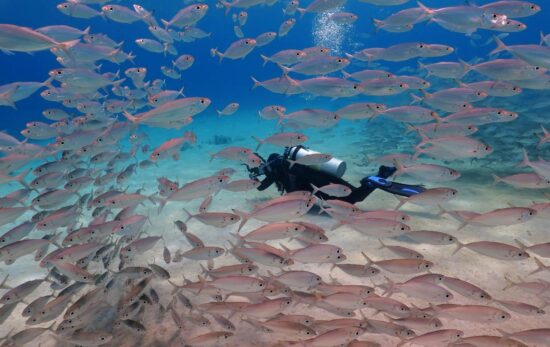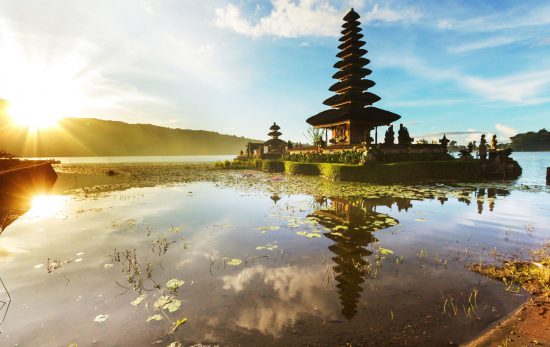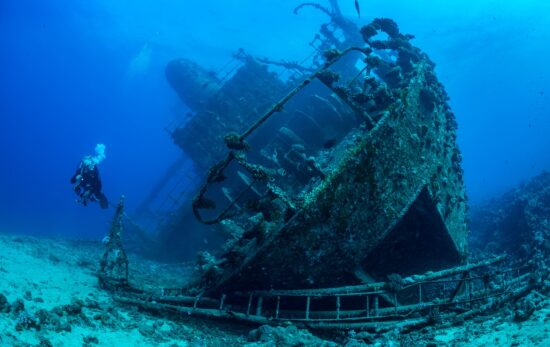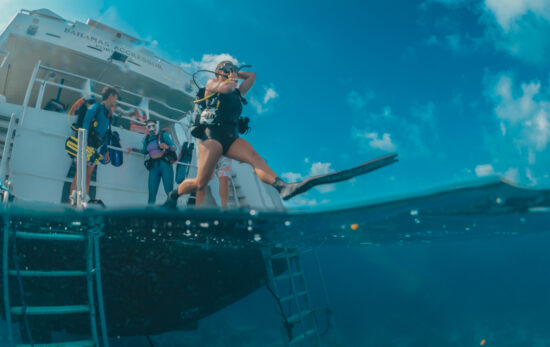It was my sixth dive in a little over a week, and I was about to hit the water with Four Seasons Kuda Huraa in the Maldives. I tightened the straps of my Buoyancy Control Device (BCD), went through a final buddy check with my PADI Divemaster, and without a care in the world, descended into the turquoise waters of the Indian Ocean. It was only later that I realized I was so fixated on a desire to see the mantas just off the coast of Malé, that I hadn’t felt any of my normal pre-dive nerves.
A few months prior to that magical dive, I completed the PADI Open Water Diver course. It was easily one of the best things I’ve ever done for myself. The default is to compare learning how to scuba dive it to gaining superpowers – but I dare you to find another term for it. After 72 hours of intense pool work and open water dives off the coast of the Channel Islands, California, I felt ready to join the Avengers.
One-off dive experiences are fantastic, and I quickly collected my fair share of favorites. (The Kona, Hawaii manta night dives are literally the stuff of dreams.) But only occasionally getting in the water didn’t expand my skill set the way I had hoped. While diving has never felt difficult or scary, I was still stuck in the phase where things didn’t feel automatic. Worse yet, my honors-student, A+ mentality followed me into diving, meaning that instead of giving myself grace for learning something new as adult, I was compulsively reviewing my PADI videos and manuals, worried what someone might think if I didn’t set up my gear right on the first try. (Spoiler: Divemasters are there to help on guided dives, if you need it.)
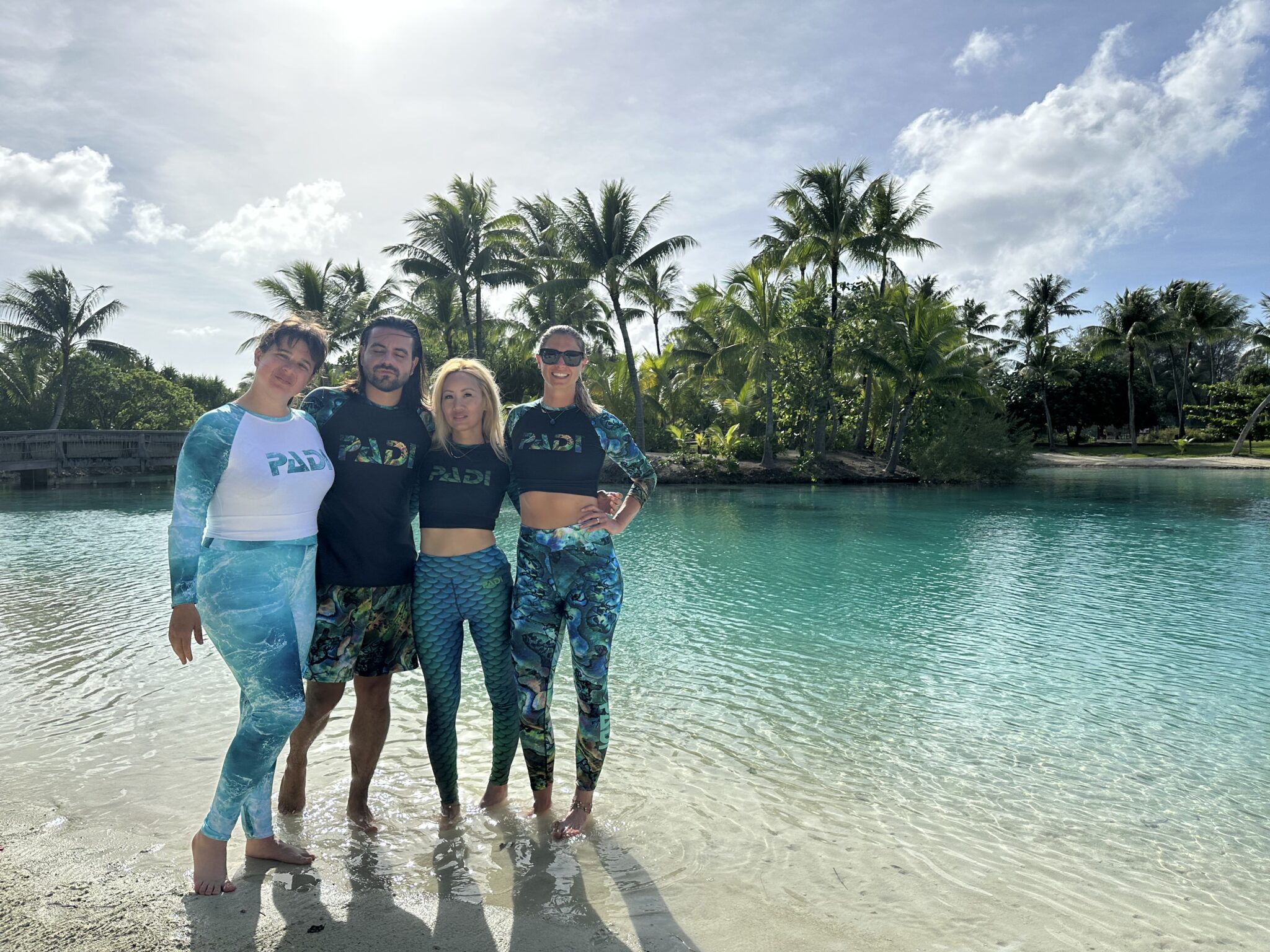
So, when I was invited on a multi-resort trip through the Maldives, I jumped at the opportunity. Not only was I excited about the clear water and aquarium-like sea life, the length of the trip meant I could spend plenty of time underwater. Six dives and one week later, not only did I see the kind of sea life that still lives rent-free in my head, I was shocked at how much my skills as a diver had progressed simply by showing up every day.
It makes sense that regular practice would lead to positive results – I was expanding my comfort zone without even realizing it. Here are a few things I learned over my week of intense diving.
Diving With Many Different Divemasters Teaches Flexibility
Every divemaster’s goal is to keep their divers safe. And every divemaster works their way down the same pre-dive checklist. But seeing how each person handled those requirements helped me realize that diving isn’t a one-size-fits all activity. When I needed help, like when I struggled to carry my BCD and tank up a ladder after a dive, I felt comfortable asking for assistance, knowing that there were multiple ways to address the issue.
Diving in Different Environments Teaches Adaptability
While diving in the Maldives is overwhelmingly gorgeous, it is not a uniform experience. One site could have a significant current, while the next one could be totally still. Morning dives might have crystal-clear visibility, while afternoon storms have the potential to make the waters murkier. Making adjustments on a dive-by-dive basis instead of a day-by-day basis trained my brain to quickly recognize variables that could affect my dive experience.
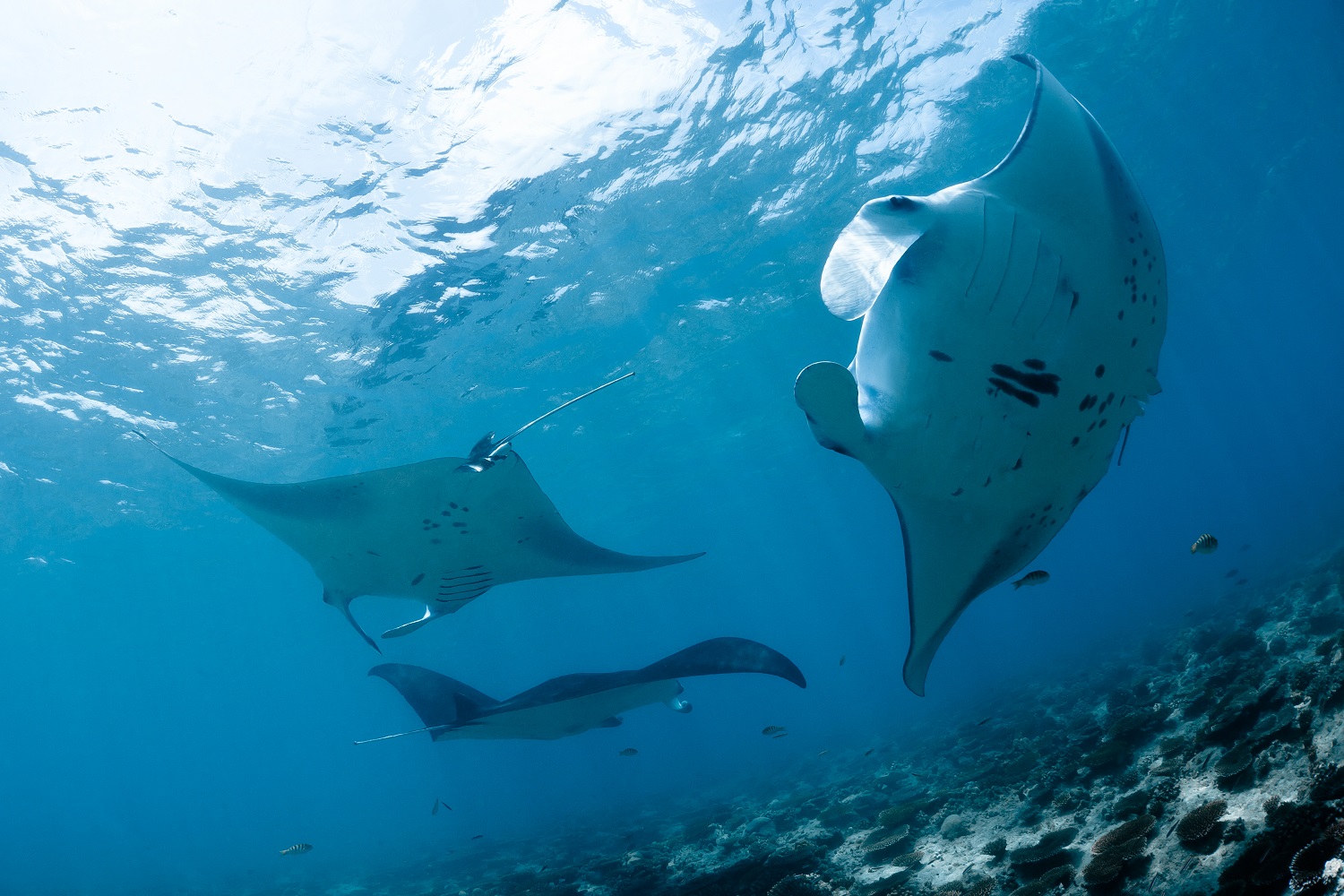
Diving Regularly Trains Muscle Memory
Stretching out a cramp? Clearing my mask? Locating my dump valve? Developing muscle memory takes time. After trying skills that I had only practiced in my Open Water Diver course across several dives, they suddenly felt less like high-pressure hypotheticals, and more like tiny adjustments that improved the overall quality of my time underwater.
Immediately Using Advice Means Immediate Results
One of the best parts about being a newbie is the ability to shamelessly ask questions. Not only did multiple dives help me tap into my inner curious child (“What was that fish?” “Why did I struggle with buoyancy during the safety stop?” “What’s the style to make sure that my hair doesn’t get tangled in my tank?”), being able to immediately implement divemaster advice meant that the positive results were forever lodged in my brain.
When you’re new to scuba, it can seem like a tall order to book a trip with multiple dives. But throwing yourself into the process, and gaining regular intense practice will pay off in calmer, more enjoyable dives. While I’m still learning (and can’t wait to tackle the Advanced Open Water Diver course), I’m now able to look at the experience less like a test where I am determined to get the best grade, and more like a journey. I can’t wait to jump in again.
